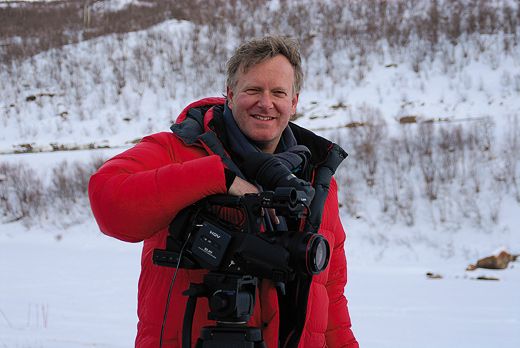In the Shadow of the Moon
David Sington’s newest documentary is all about the Apollo astronauts.
British filmmaker, writer, and producer David Sington has created science documentaries for “Nova” and the BBC. In his most recent film, In the Shadow of the Moon, Apollo astronauts tell their own stories through intimate interviews interwoven with original NASA footage, much of it never seen before. He spoke with Air&Space Senior Editor Tony Reichhardt last March.
A&S: This seemed to be the documentary that people were talking about at the Sundance Film Festival.
Sington: There are, what, seven billion on the planet and nine of us have stood on another planetary body. This is not a film about the Apollo mission; it’s about the Apollo astronauts. The first shot is of Jim Lovell jogging on the beach, 1960-something. The film is very humorous and the interviews were hilarious. I was laughing my head off, and I was moved to tears. That is the experience I want the audience to have: I have spent an evening with 10 remarkable men and I feel I know them a bit now. If you listen to the downlink of the moonwalk, they are on the highest of all highs. That is what I think audiences respond to, the intense emotionality: Gosh, they have feelings, they are not robots.
A&S: People respond to the human stories, yet they also see astronauts as larger-than-life heroes.
Sington: A fundamental mistake that a lot of filmmakers make approaching films about people going into space is to focus on the fear and peril. Because actually, these guys are trained and habituated not to feel fear very strongly. If you have that reaction, then you can’t be a test pilot and you certainly cannot be an astronaut. So if you do a film all about going into space and how dangerous it is, the astronauts will never give you that emotion. The net result is you think these guys don’t give any emotion at all. But that is dead wrong. They are feeling all of the emotions — joy, exultation, exuberance, all of those things. When I looked at the footage of people watching the Saturn rocket, every single person has this great big grin plastered on their face.
A&S: You have a long sequence in the film of a 1960s Dream Whip commercial, a bit of Americana and context.
Sington: We all grew up watching television. And these jingles take you right there: “Gosh, I was seven.” You get very strong nostalgia reactions. That is the power of popular culture, and you love it when the man on the moon is sponsored by Kellogg’s.
A&S: I’ve never heard anyone say, “Man, I’m glad we beat the Russians to the moon.” That may have been the political impetus, but on the day of the moon landing, everyone was thinking big.
Sington: Apollo happened very much in the context of the cold war. However, it was another way of fighting the cold war that did not involve dropping bombs. America fought the cold war militarily, but it also fought it culturally, technologically, and spiritually, if you will. Apollo showed America at its sort of generous, courageous, and adventurous best.
